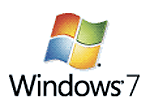 At an analyst meeting in New York City today, Microsoft CEO Steve Ballmer revealed that the company was working on a low-end edition of Windows 7 that’s designed to run on netbooks. The increasingly popular budget notebooks rarely run Windows Vista, in part because that OS’s hardware requirements–formulated in the pre-netbook era–simply exceed what most 0f the low-cost machines have to offer.
At an analyst meeting in New York City today, Microsoft CEO Steve Ballmer revealed that the company was working on a low-end edition of Windows 7 that’s designed to run on netbooks. The increasingly popular budget notebooks rarely run Windows Vista, in part because that OS’s hardware requirements–formulated in the pre-netbook era–simply exceed what most 0f the low-cost machines have to offer.
Microsoft’s interest in netbooks is an acknowledgment that Windows 7 needs to compete with lower-cost solutions that come preloaded with Linux and even Windows XP. Other potential entrants, including Google’s Android OS, are also threatening Windows’ dominance.
The company’s failure to compete in the low-end market has profoundly impacted its finances. Windows client revenue recently fell 8% as a result of PC “market weakness and a continued shift to lower priced netbooks,” according to Microsoft’s second-quarter earnings release. Even so, Ballmer stated that about 90 percent of netbooks have been shipped with Windows XP, during today’s conference.
And that trend is significant: netbook sales are steadily increasing. This month IDC found that netbooks account for 30% of sales in the Europe, Middle East and Africa (EMEA) market alone.
Outlining Microsoft’s strategy to appeal to netbook buyers, Ballmer said that Microsoft is developing a low-end version of Windows 7 designed specifically for netbooks, and will provide an upgrade path to more powerful versions of the OS. Windows 7 is designed to work well on inexpensive laptops, he said.
Ballmer didn’t talk about what features the Windows designed for netbooks will and won’t offer, but the company has already announced that the bargain-basement Windows 7 Starter Edition will only let users run three programs at once. My take is that Microsoft would be wise not to appreciably limit the functionality of Windows 7 on netbooks, or customers will vote with their feet, and PC manufacturers will choose another operating system that makes the most of what netbooks have to offer.

 Bloomberg is reporting that Eee PC titan Asus is playing around with the idea of building a
Bloomberg is reporting that Eee PC titan Asus is playing around with the idea of building a  Time for a new Technologizer feature! In theory, people come to sites like this one to seek wisdom about technology. The truth, of course, is that there are a lot more of you than there are of us Technologizer bloggers–and collectively (and, in many cases, individually) you know more about this stuff than we do.
Time for a new Technologizer feature! In theory, people come to sites like this one to seek wisdom about technology. The truth, of course, is that there are a lot more of you than there are of us Technologizer bloggers–and collectively (and, in many cases, individually) you know more about this stuff than we do.
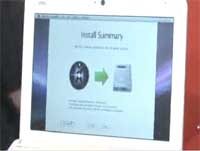 Apple has a history of hypersensitivity toward the media. It once
Apple has a history of hypersensitivity toward the media. It once 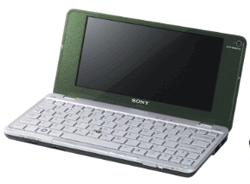 I haven’t run into a Sony Vaio P notebook here at CES in Las Vegas yet, but judging from
I haven’t run into a Sony Vaio P notebook here at CES in Las Vegas yet, but judging from 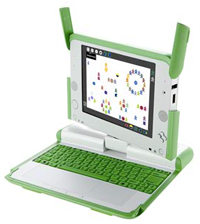 Just weeks after administering its “Give One, Get One”
Just weeks after administering its “Give One, Get One” 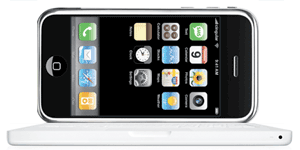 Two new rumors this week are different in the details but share an interesting overarching theme: TechCrunch is reporting that Apple is working on an
Two new rumors this week are different in the details but share an interesting overarching theme: TechCrunch is reporting that Apple is working on an 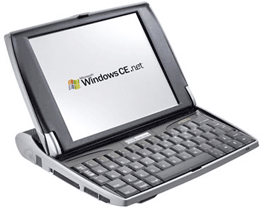 Back in the mid-1990s, I loved my Psion PDA as much as any gadget I’ve ever owned. But Psion stopped making consumer products years ago, and I wasn’t even positive if the company–which spun off its software unit into phone OS powerhouse Symbian–was still in business.
Back in the mid-1990s, I loved my Psion PDA as much as any gadget I’ve ever owned. But Psion stopped making consumer products years ago, and I wasn’t even positive if the company–which spun off its software unit into phone OS powerhouse Symbian–was still in business. In my more cynical moments, I’ve sometimes contended that analysts don’t know anything we technology journalists don’t–it’s just that they get paid (a lot) more for their opinions, and people take them more seriously. I was reminded of this stance when I read a Computerworld story today which reports that analyst Ezra Gottheil of Technology Business Research is saying that
In my more cynical moments, I’ve sometimes contended that analysts don’t know anything we technology journalists don’t–it’s just that they get paid (a lot) more for their opinions, and people take them more seriously. I was reminded of this stance when I read a Computerworld story today which reports that analyst Ezra Gottheil of Technology Business Research is saying that